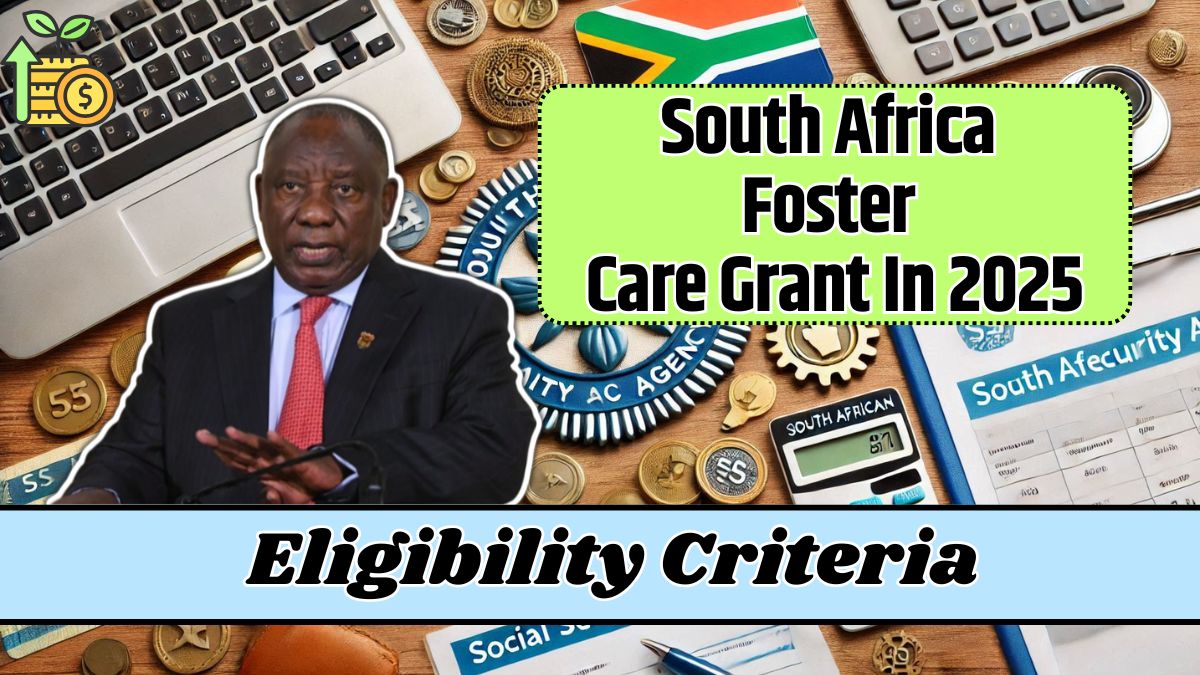The SASSA Foster Care Grant is a critical financial support program designed to assist caregivers providing a stable and nurturing environment for vulnerable children.
For 2025, the grant continues to offer monthly financial assistance of R1,180 per child, helping foster parents cover essentials such as food, clothing, healthcare, and education.
Here’s a detailed guide on who qualifies, how to apply, and what to expect during the process.
What Is the Foster Care Grant?
The Foster Care Grant is a monthly allowance for caregivers legally assigned custody of a child through a Children’s Court order.
It supports children who are orphans, abandoned, or victims of neglect or abuse, ensuring their basic needs are met in a safe environment.
Who Qualifies for the Foster Care Grant?
To qualify for the SASSA Foster Care Grant, caregivers must meet the following criteria:
1. Residency and Citizenship
- Both the caregiver and foster child must be South African citizens, permanent residents, or recognized refugees.
- They must live in South Africa during the foster care period.
2. Court-Ordered Foster Care
- The child must be placed in the caregiver’s custody via a Children’s Court order due to circumstances such as neglect, abandonment, or abuse.
3. Age Requirement
- The foster child must be under 18 years old.
- If the child is still attending school or vocational training, the grant can be extended to age 21 with proof of enrollment.
4. Non-Biological Relation
- The grant is for foster care placements only, meaning the child cannot be the biological child of the applicant.
5. No Income Test
- There is no means test, so the caregiver’s income level does not affect eligibility.
How to Apply for the Foster Care Grant
Follow these steps to apply for the grant:
1. Gather Required Documents
Prepare the following documents:
- The caregiver’s South African ID or refugee status permit.
- The foster child’s birth certificate.
- The court order assigning custody of the child to the applicant.
- Proof of residence, such as a utility bill or lease agreement.
- If any documents are unavailable, submit an affidavit with assistance from SASSA officials.
2. Visit a SASSA Office
- Go to the nearest SASSA office with the required documents.
- SASSA representatives will assist you in completing the application forms.
3. Receive a Receipt
- Once the application is submitted, you’ll receive a dated receipt as proof. Keep this for your records.
4. Application Processing
- Applications can take up to three months to process. If approved, payments are retroactive to the date the child was placed in foster care.
5. Appeal Process
- If your application is denied, you can file an appeal with the Minister of Social Development within 90 days of receiving the rejection notice.
Payment Options
Foster Care Grant payments are issued monthly, and caregivers can choose from several payment methods:
| Payment Option | Details |
|---|---|
| Bank Account | Funds deposited directly into the caregiver’s bank account. |
| Cash Send | Payments sent via Cash Send for collection at participating retailers. |
| Post Office or Retail | Collect grants at the Post Office or select retailers (e.g., Shoprite, Pick n Pay). |
Renewal and Review Process
1. Periodic Reviews
SASSA conducts reviews every two years to ensure the child remains in the caregiver’s legal custody.
2. Expiring Court Orders
- When a court order expires, caregivers are notified three months in advance to confirm whether the foster care arrangement should continue.
3. Extension to Age 21
If the child is still in school or vocational training when they turn 18, the grant can be extended to 21 years old upon providing proof of enrollment.
When the Grant May Be Suspended
The Foster Care Grant may be discontinued under certain conditions:
| Reason | Details |
|---|---|
| Age Limit Reached | Grant ends at age 18 unless extended for education or training. |
| Change in Custody | If the child leaves the caregiver’s custody or moves out of South Africa. |
| Non-Collection | Failure to collect the grant for three consecutive months. |
| Fraudulent Activity | Any detected fraud results in immediate suspension. |
Accessibility Challenges
For caregivers in remote areas, access to Home Affairs offices can be difficult due to distance and mobility limitations.
Advocacy groups are urging SASSA to deploy mobile units to underserved regions and provide better assistance for elderly or disabled applicants.
Key Contact Information
| Resource | Details |
|---|---|
| SASSA Toll-Free Number | 0800-601011 |
| SASSA Website | Visit for updates and application guidelines. |
| Local SASSA Offices | Find your nearest office for in-person assistance. |
The SASSA Foster Care Grant plays a crucial role in supporting vulnerable children by providing foster parents with the financial resources to ensure a stable and nurturing environment.
By understanding the eligibility requirements, gathering the right documents, and following the application process, caregivers can secure this vital assistance with ease.
















